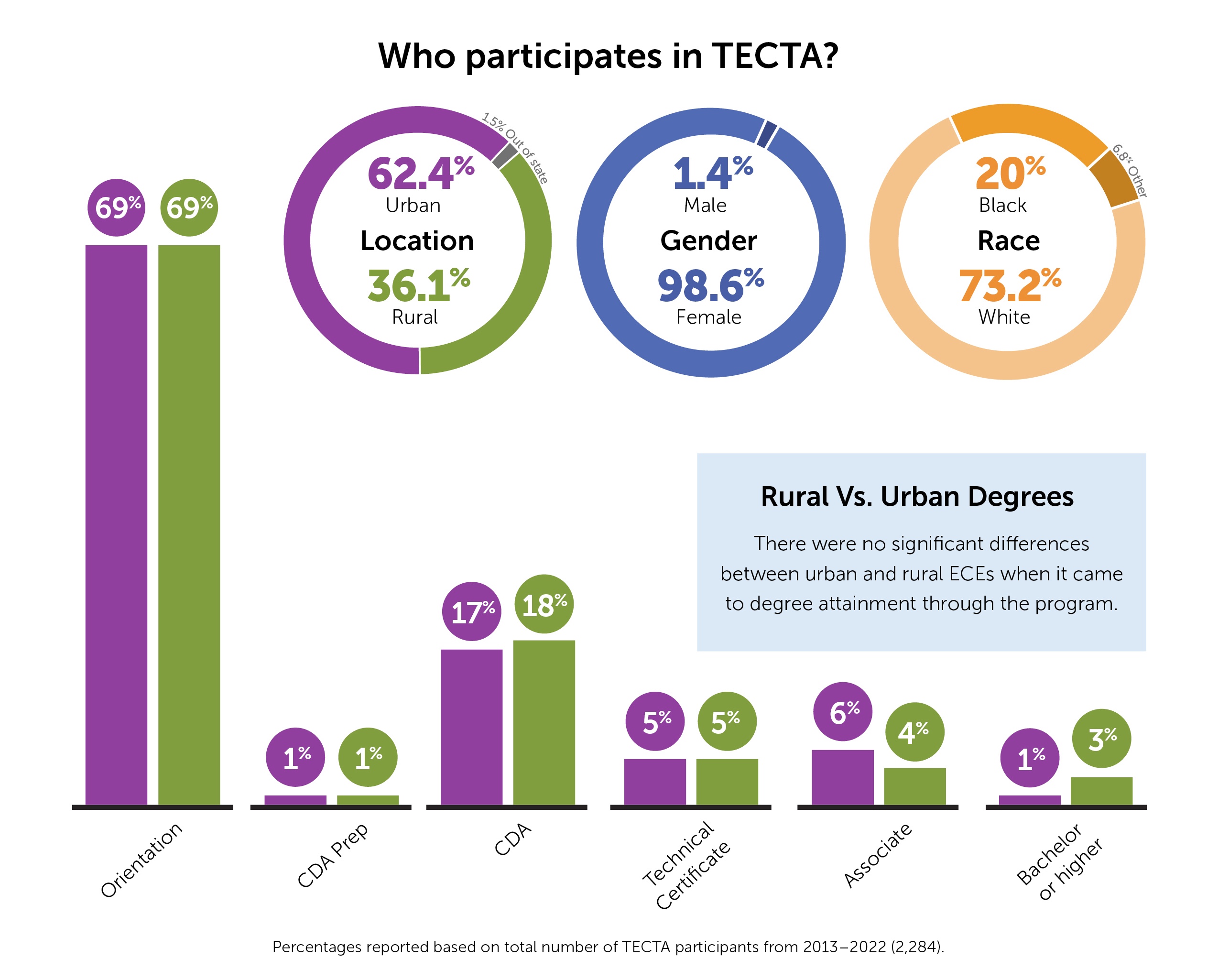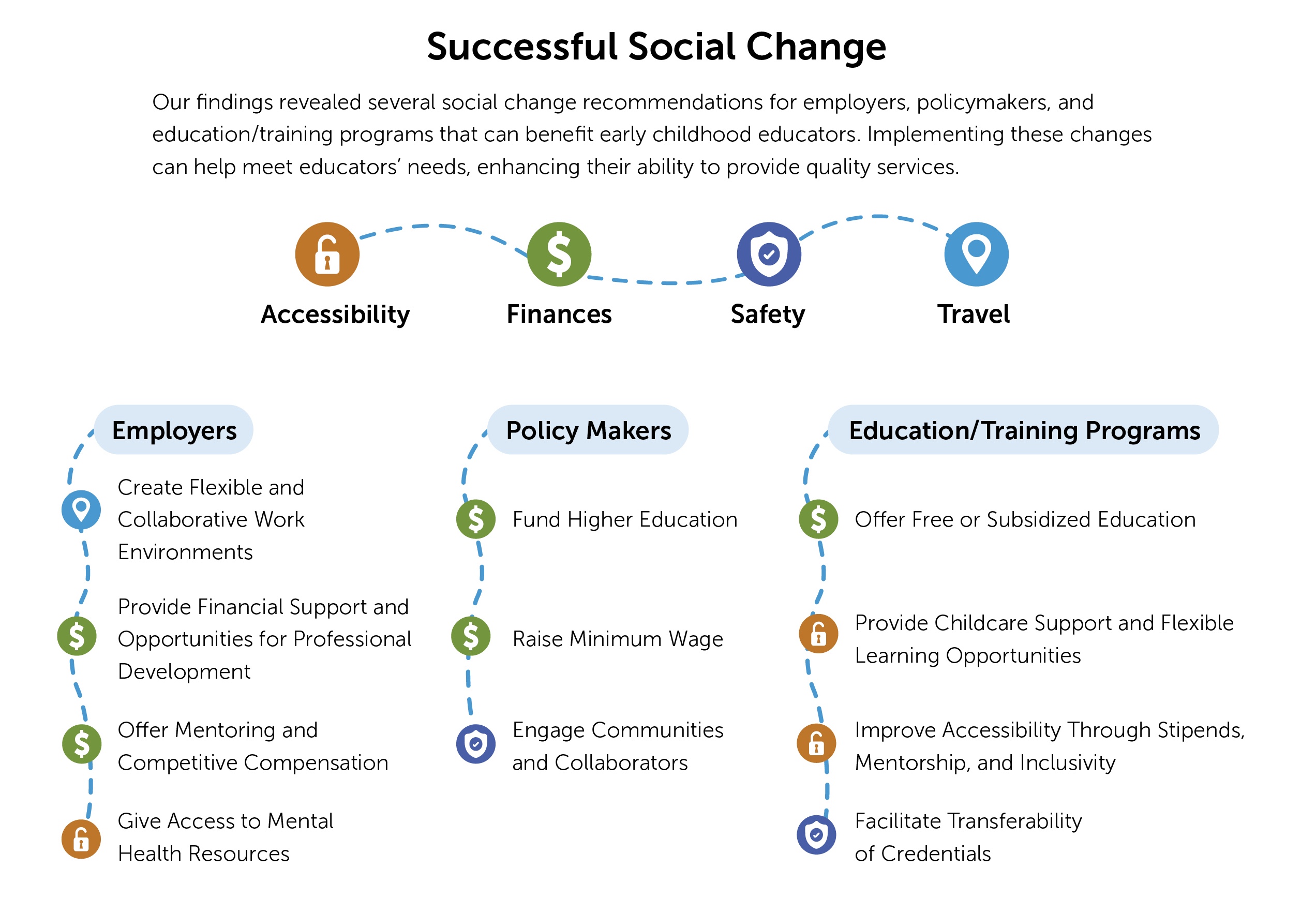

By listening to the experiences and concerns of these educators, we gained a deeper understanding of the systemic barriers hindering equitable education in rural communities. We also gained an understanding of what participants call the “Babysitter Stigma,” in which some people regard early childcare workers as glorified babysitters, undermining and dismissing the level of skill and complexity inherent in their work. This stigma reinforces the false narrative that early childcare workers are “unskilled workers” rather than skilled professionals with viable and meaningful careers. Furthermore, we partnered with participants to identify barriers to their success that are often overlooked. The demands that are placed on ECE providers to juggle the responsibility of educating the upcoming generation and caring for a family while also pursuing their education can lead to increased anxiety and depression, financial strain, and a reduction in overall well-being.
In combination with the experiences of the ECE providers and the TECTA administrators, we crafted actionable recommendations to create opportunities for social and economic mobility. Those recommendations were directed at employers, education and training programs, and policymakers. Among those recommendations were the funding of wrap-around support networks, improving access to educational and training opportunities, and the implementation of equitable employment practices. We hope collaborators and program leaders will implement similar practices in their communities, signaling a growing momentum toward systemic change in the field of rural education.
To further equip collaborators and program leaders, we developed an infographic highlighting the systemic challenges faced by ECE service providers as well as relevant demographics to provide perspective on the population we are aiming to elevate. The infographic also includes relevant, actionable recommendations to help collaborators become more involved in the solution.

Through our collaborative approach and unwavering commitment to driving innovation, the Pathways initiative is committed to the transformative potential of equitable education practices in rural communities. We are laying the groundwork for a more inclusive and equitable landscape in Tennessee and beyond through empowering childhood education service providers and fostering meaningful engagement with collaborators.
As the team continues to expand its reach and impact, we remain dedicated to advancing the cause of equitable education pathways for all learners. Our report, “From Childcare to Educare: Inspiring Change in Early Childhood Education for Rural Tennessee,” explores the impact of policy reform and training on ECE providers and empowerment through high-quality upskilling.
To learn more about the current state of early childhood education policy in the United States, read our blog post, “How Centering the Voices of Early Childhood Educators in Rural Communities Can Promote Equity,” and sign up for the ConnectED Pathways newsletter to stay updated on our projects and partnerships.